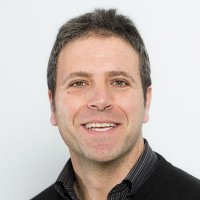
Frank Caruso (Australia)
Lecture topic: Advanced Materials via Supramolecular Gelation
Frank Caruso is a professor and an NHMRC Senior Principal Research Fellow at the University of Melbourne. He is also Deputy Director of the ARC Centre of Excellence in Convergent Bio-Nano Science and Technology. His research interests include engineered materials for biological applications. He has published over 450 peer-reviewed papers and was on Thomson Reuters’ 2014 list of World's Most Influential Scientific Minds.
He is an Executive Editor of Chemistry of Materials. He was elected a Fellow of the Australian Academy of Science in 2009 and a Fellow of the Royal Society in 2018.
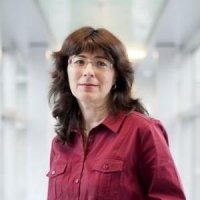
Joanna Aizenberg (USA)
Lecture topic: Sol-gel-derived inverse-opal structures for photonic, catalytic and sensing applications
Joanna Aizenberg is an Amy Smith Berylson Professor of Materials Science and Professor of Chemistry & Chemical Biology at Harvard University, the co-director of the Kavli Institute for Bionano Science and Technology, and a core faculty member of the Wyss Institute for Biologically Inspired Engineering. Joanna Aizenberg pursues a broad range of research interests that include biomineralization, biomimetics, self-assembly, crystal engineering, surface chemistry, nanofabrication, biomaterials, biomechanics and biooptics. She has received many awards including the Havinga Medal (2017) and the George Ledlie Prize for most valuable contribution to science.
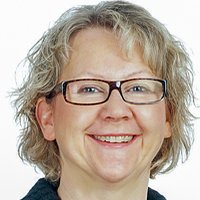
Mari-Ann Einarsrud (Norway)
Norwegian University of Science and Technology
Lecture topic: Aqueous chemical solution deposition of thin oxide films
Mari-Ann Einarsrud is a Professor of inorganic chemistry at the Department of Materials Science and Engineering of Norwegian University of Science and Technology. Her research areas include ceramics, nanostructured and inorganic materials, wet chemical synthetic methods; powders, nanoparticles, and thin films; functional oxides for energy technology; ferric oxide materials; and thermoelectrics. She is a co-founder of CerPoTech AS. She was elected member of The Norwegian Academy of Science and Letters (2009). Her other awards and activities are profiled in Lynette D. Madsen, “Successful Women Ceramic and Glass Scientists: 100 Inspirational Profiles”, Wiley, (2016).

Peter Fratzl (Germany)
Max Planck Institute of Colloids and Interfaces
Lecture topic: Water-mediated forces in biological materials
Peter Fratzl is a Director at the Department of Biomaterials, Max Planck Institute of Colloids and Interfaces. His research fields include biomimetic materials, structure-function relations in biological materials, bone minerals research, mechanical properties, modeling of composite materials, and solid-state phase transformations. Peter Fratzl has published on these topics more than 450 publications. Some of his recognitions are his election as a member of the Academy of Science and Literature / Mainz (2015), as a member of the German Academy of Science and Engineering, and as a Fellow of the Materials Research Society (MRS), USA (2012).
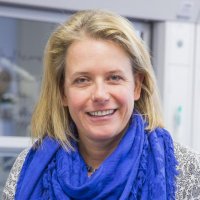
Nicola Huesing (Austria)
Lecture topic: Highly Porous Materials by Non-Conventional Sol-Gel Precursors and Processes
Nicola Huesing is a Professor and Head of the Department Materials Science and Physics at the Paris Lodron University of Salzburg. In addition, she is a Vice President of the Austrian Society of Chemists (GÖCH), a member of the Selection Committee for the Alexander von Humboldt Foundation, a member of the Executive Committee of the Austrian Science Funds (FWF), and a full member of the Austrian Academy of Sciences. Her areas of specialization include sol-gel processes, aerogels, template-directed synthesis, porous materials, hybrid materials, interface-determined materials, and synthesis – structure – property relationships. She is a recipient of the Harry-Klopfer Aerosil Award.

Eugenia Kumacheva (Canada)
Lecture topic: Bridging the gap between molecules and nanoparticles
Eugenia Kumacheva is a Professor of Chemistry at the University of Toronto and a Canada Research Chair in Advanced Functional Materials. Her research interests span across the fields of fundamental and applied polymers science, nanotechnology, microfluidics, and interface chemistry. She is a recipient of the L'Oréal-UNESCO Awards for Women in Science in 2008, and serves on the advisory boards of the Brookhaven National Laboratory (USA), of the Triangle Materials Science and Engineering Center (USA), of the RIKEN Institute (Japan), of the Leibnitz Institute for Interactive Materials (Germany), and more.

Kazuki Nakanishi (Japan)
Lecture topic: Porous Inorganic Monoliths: Challenges in extending chemical compositions for broader applications
Kazuki Nakanishi is a Professor and Vice-Director at the Institute of Materials and Systems for Sustainability of Nagoya University, Japan. His fields of research are porous materials, phase separation, separation science, sol-gel methods, and particularly macroporous monoliths, aerogels and hierarchically porous monoliths which can be applied as adsorbents, separation media and catalysts supports. He co-authored over 300 papers in these fields which are highly cited and received several awards in recognition of his achievements, including the ICG Gottardi Prize and more. He has served as a co-editor of the Journal of Sol-Gel Science and Technology since 2009.
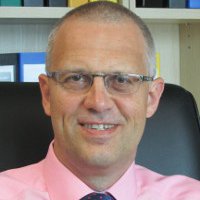
Andrey Rogach (China)
Lecture topic: Solution processable light-emitting colloidal nanostructures
Andrey Rogach is a Chair Professor of Photonic Materials at the Department of Materials Science and Engineering, City University of Hong Kong. His research interests include colloidal semiconductors and quantum dots, nanophotonics, metal nanocrystals, hybrid nanostructures, photovoltaics, water splitting, biological fluorescent labels, SERS and more. He has co-authored over 360 publications, which are highly cited – he is ranked 8th in the “Top authors publishing on nanocrystals in the past decade" (Thomson Scientific). His recognitions include the Walton Award of the Science Foundation, Ireland (2005), Fellow of the Electromagnetics Academy, USA (2014), and more. Since 2011 he is an Associate Editor of ACS Nano.
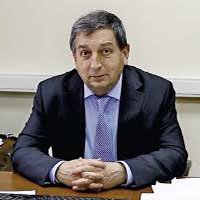
Aziz Muzafarov (Russia)
A. N. Nesmeyanov Institute of Organoelement Compounds of the Russian Academy of Sciences
Lecture topic: Hyperbranched polyethoxysiloxanes and molecular nano-gels based on them
Aziz Muzafarov is a Professor, an Academician and the Director of the A. N. Nesmeyanov Institute of Organoelement Compounds of the Russian Academy of Sciences, Moscow. His research interests of are related to organosilicon compounds and include novel macromolecular syntheses, organosilicon dendrimers and hyperbranched polymers, nanoscale polymeric stars, molecular brushes, and nanogels. In recognition of his scientific achievements, he was awarded the S. V. Lebedev Prize in 1998.

Mario Pagliaro (Italy)
National Research Council of Italy (CNR)
Lecture topic: Sol-Gel Catalysts for Synthetic Organic Chemistry: Milestones in 30 Years of Successful Innovation
Mario Pagliaro is a materials scientist and energy scholar based in the National Research Council of Italy (CNR) laboratories in Palermo. His research activities include nanochemistry, chemical and materials sustainability, solar energy materials and bioeconomy of materials and catalysts. He has co-authored over 200 research papers many of which are highly cited. He is a very prolific book writer and has authored or co-authored 21 books on various topics in materials science, green science and more. In recognition of his "significant contributions to the chemical sciences", he was elected Fellow of the Royal Society of Chemistry (2014).
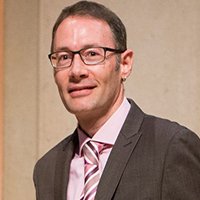
Markus Niederberger (Switzerland)
Lecture topic: Aqueous and Nonaqueous Sol-Gel Chemistry: Similarities and Differences
Markus Niederberger is a Professor of materials science at the ETH, Zurich and holds the Chair of the Laboratory for Multifunctional Materials. His research focuses on chemical synthesis of inorganic functional materials and nanoparticles, mainly for energy storage and conversion, gas sensors and electronics, and the development of non-hydrolytic methods for the preparation of inorganic nanoparticles. Markus Niederberger holds the Golden Owl award.

Submit your abstract to sol-gel-research@corp.ifmo.ru.
Invited speakers will get the opportunity to give an oral presentation, and choose one of their PhD students who will receive a free ticket to accompany them to the Conference. Selection of the invited speakers will be based on the International Advisory Board’s and the Local Organizing Committee’s evaluation. Criteria are scientific merit, originality, and impact of the proposed research.